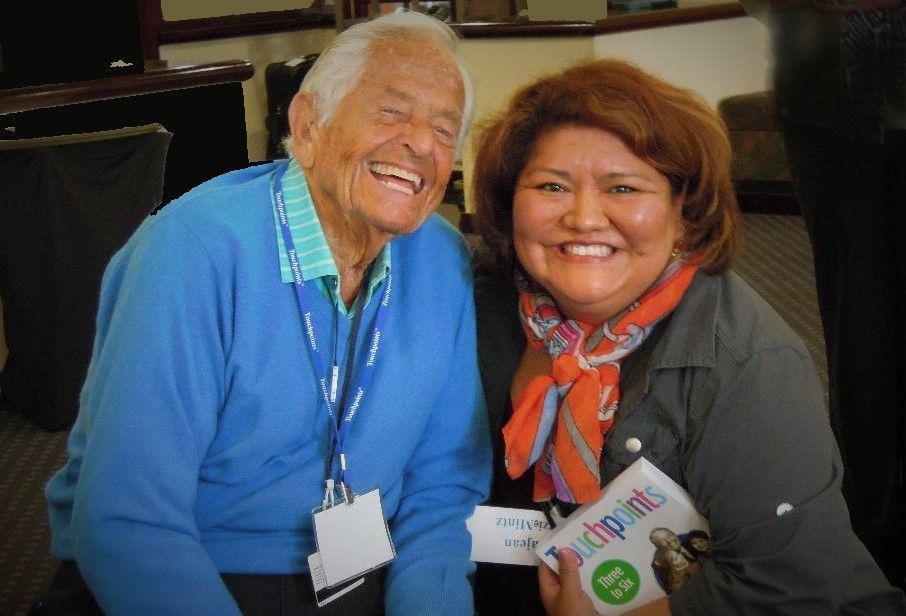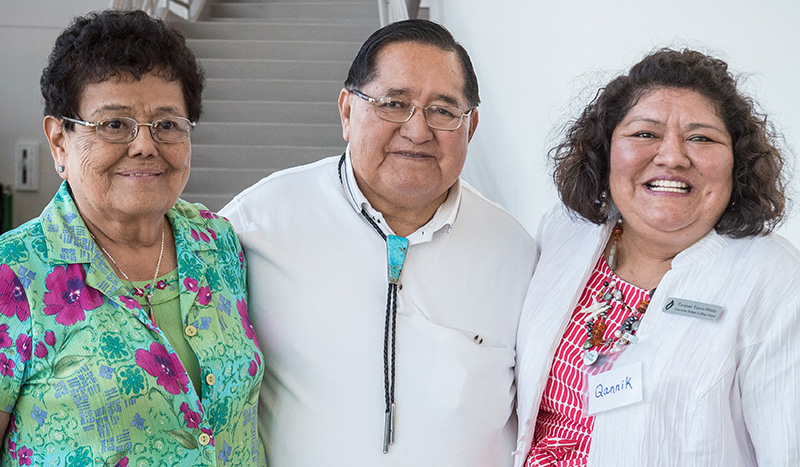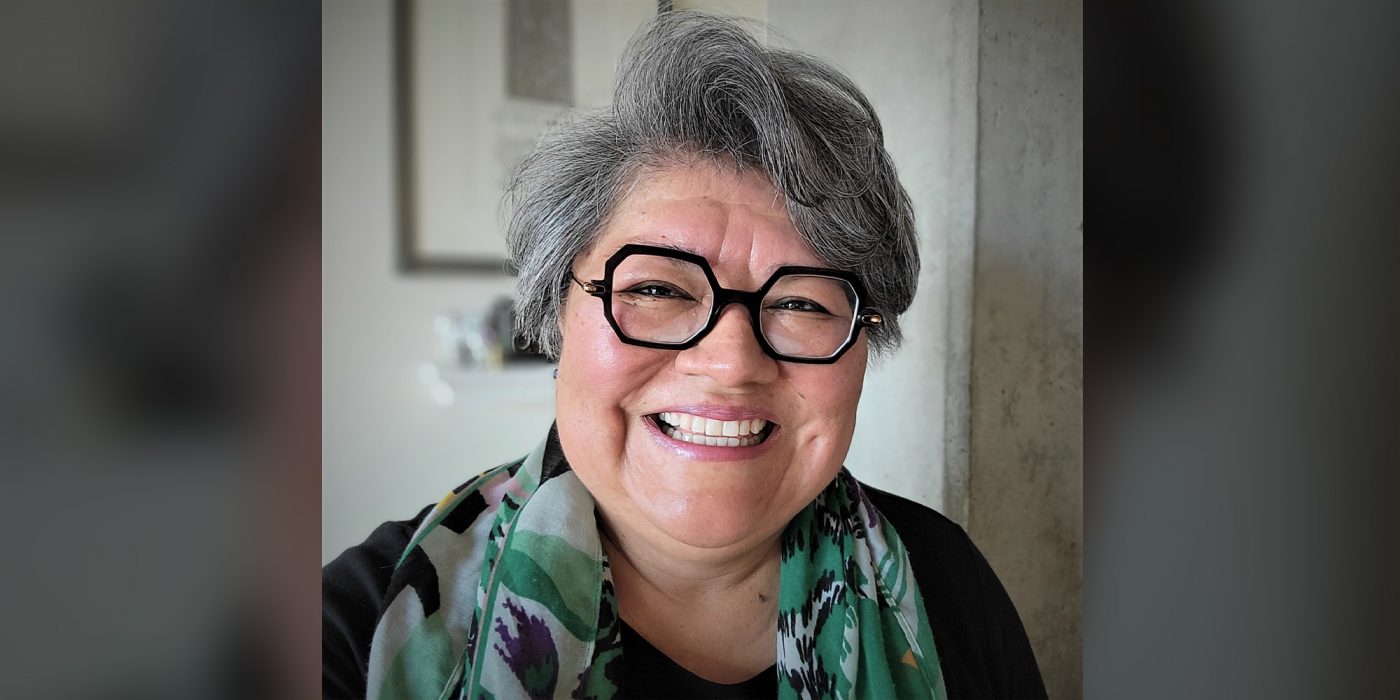At the Brazelton Touchpoints Center (BTC) National Forum next week, Dr. Tarajean Yazzie-Mintz will receive the T. Berry Brazelton Award. Given in memory of BTC’s founder, the award honors individuals who seek out, deeply respect and give voice to the intrinsic strengths and truths of babies and young children as well as the families, communities and cultures that nurture them.
👉 Register now for the Brazelton Touchpoints Center’s National Forum
Dr. Yazzie-Mintz is looking forward to having a dialogue at the March 30 Award Ceremony about complex issues affecting Native communities, families and children. “Engaging audiences in complex issues happens through the back and forth, and digging deeper,” she says.
The culturally grounded Indigenous Early Learning Collaborative (IELC) she leads collaborates with tribal communities to create systems in which families and children thrive. Funded by the W.K. Kellogg Foundation, this partnership between BTC and the First Light Education Project facilitates community-driven and community-directed inquiry into advancing high-quality early care and learning opportunities.
👉 Read part I of our interview with Dr. Sparrow

BTC executive director Dr. Joshua Sparrow describes Dr. Yazzie-Mintz as a visionary leader. Drs. Yazzie-Mintz and Sparrow met at a conference in 2005, and she was glad to learn that Dr. Brazelton (who died in 2018) had been connected to her Navajo reservation. “He was a good friend of the medicine people in my community,” she recalls. “He knew all the places where I grew up.”
Both of Dr. Yazzie-Mintz’s parents were career Navajo educators, and she credits them with teaching her “to be a problem solver and to activate a change mentality, be it in early learning centers or social services or health care.” She recalls accompanying her father as he presented testimony to the Arizona State Legislature in support of a pedestrian overpass. “That was one of our adventures together,” she says.
👉 Read part II of our interview with Dr. Sparrow
Dr. Yazzie-Mintz’s approach to research departs from the familiar academic paradigm. Reaching beyond her master’s degree in educational psychology from Arizona State University, Doctorate in Learning and Teaching from the Harvard Graduate School of Education and five years on the faculty of Indiana University-Bloomington, she embraces a research approach that centers close collaboration with tribal communities. “The role that academics play is important,” she explains, “but academics are not the first audience for our work. We translate scientific research into usable knowledge.”
“With community-based inquiry,” she continues, “those who are most impacted by the research are actually the ones who are developing and asking their own questions. They co-construct processes to collect information. Making meaning of that information is another component of their inquiry, as is seeing the complexity of applying what they learn.”
👉 Read more: Discover the Indigenous Early Learning Collaborative at the BTC National Forum
Dr. Yazzie’s first stop after leaving academia was the American Indian College Fund (College Fund), where she designed and launched a series of early childhood initiatives from 2011 through 2019:
- The Wakanyeja Sacred Little Ones Initiative, which addressed early learning disparities
- The Ké’ Family Engagement Initiative, which sought to strengthen systems of shared responsibilities among families, schools and communities
- The Restorative Teaching Initiative, which was focused on strengthening systems of care and learning
- For the Wisdom of the Children, the College Fund’s STEM project dedicated to strengthening the teacher of color pipeline
Upon leaving the College Fund in 2019, Dr. Yazzie-Mintz founded the First Light Education Project in Denver. “Tribal communities kept asking me, ‘How can we start our own initiatives in our communities? How can we change our health system? How can we change our rec center to be more racially equitable?’” More often than not, they already had the answers. “Native teachers and leaders are the experts,” she says. IELC’s value comes in helping these practitioners to obtain the resources needed to conduct the work.
“We’re bridging the space between research and practice, and offering our resources to find funding, to support local community-based research.”

Native Americans live in a wide variety of communities across the United States. Many are clustered around 32 accredited tribal colleges and universities. The College of the Menominee Nation, for example, offers a hub of resources for Native communities in northern Wisconsin. “A tribal college offers professional development and credentialing locally,” explains Dr. Yazzie-Mintz. “They have the faculty and infrastructure to train teachers, and they can partner with Head Start.”
👉 Read about Menominee teacher education
Yet about three-fourths of the U.S. Native population lives off reservation land. “In places like Chicago, they’re spread out in urban and suburban areas,” she notes. Local Native-led nonprofits provide cultural programming, workforce development and an early learning preschool. The University of Arizona and University of Oregon also offer Indigenous teacher education.
IELC is partnering with tribal communities as they address a range of challenges that predate the pandemic, including a dearth of culturally informed teachers. Dr. Yazzie-Mintz and her team collaborate with communities to use the evaluation methods they choose so that they can understand their own impact and demonstrate to funders the value of investing in their work. They train parents on communicating with school board members and city officials. Dr. Yazzie-Mintz says that regardless of the specific concern that brings her together with a community, the process often comes back to what her parents taught her about “activating a change mentality.” Research and inquiry invariably form part of the strategy.

Mark Swartz
Mark Swartz writes about efforts to improve early care and education as well as developments in the U.S. care economy. He lives in Maryland.



